Iran Reportedly Sending Trade Delegation To UAE Amid Houthi Attacks
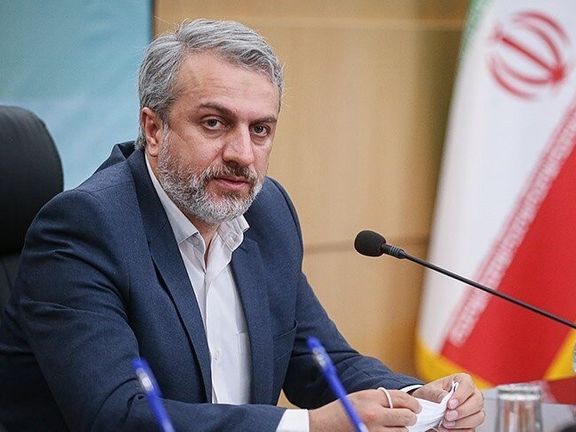
Iran will send a trade delegation to the United Arab Emirates next week, the Tehran Times said on Monday, although other media in Iran have not reported it.

Iran will send a trade delegation to the United Arab Emirates next week, the Tehran Times said on Monday, although other media in Iran have not reported it.
The reported visit would come against a backdrop of Yemen's Iran-backed Houthi movement launching attacks on the UAE, the latest also on Monday.
The UAE has long been one of Iran's main links to the outside world, but the reimposition of sanctions by former U.S. President Donald Trump in 2018 halved bilateral trade to $7 billion in 2019 according to World Bank data.
Iran's Minister of Industry will visit the UAE with the economic delegation from February 6, the English-language government newspaper reported.
"During the three-day visit, Reza Fatemi-Amin will also meet with the UAE government and private sector officials to discuss economic and trade relations," it added.
"The trip has been organized in line with the Iranian government's plans for developing economic and trade diplomacy with countries in the region, especially Iran's southern neighbours."
The UAE government did not immediately respond to Reuters' request for comment on the report.
Despite Iran's continued support to the Houthis, Tehran and Abu Dhabi have tried to abate tensions.
In December, Sheikh Tahnoon bin Zayed al-Nahyan, the UAE's senior national security adviser, visited Iran and expressed hopes of a "turning point" in Iranian-UAE relations.
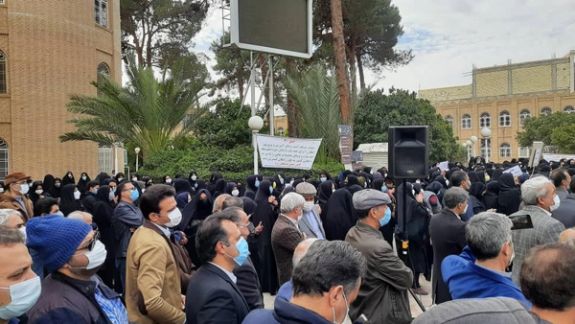
Iranian teachers have taken to streets in more nationwide protests after a two-day strike at their schools, as security forces arrested at least 7 activists.
On Monday, teachers held demonstrations in many Iranian cities to follow up on their demands for higher pay and release of their colleagues arrested in previous rounds of protests.
The spokesman of teachers’ trade associations, which organizes the demonstrations, said at least seven people have been arrested since Saturday, including three in Shiraz and two in Tehran.
According to Mohammad Habibi, teachers in 300 cities, town, and villages took part in the sit-ins in the last two days.
Teachers' protest in Esfahan on Monday.
Also on Monday, the Karaj Revolutionary Court sentenced a member of the council, Jafar Ebrahimi, to four years and six months in prison.
As in the past, the teachers gathered in front of the parliament building in Tehran and the provincial offices of the education ministry.
Habibi said teachers will not be intimidated by the attempts to suppress the protests and will continue protests and strikes until their demands are met.
People from different walks of life, including teachers, nurses, firefighters, and even staff members of the judiciary department and prison guards, have held regular protest rallies or strikes to demand higher salaries.
Food prices have risen by more than 60 percent in recent months, on top of high inflation in the previous three years, while the government is unable to sufficiently boost wages as United States’ sanctions impede full capacity oil exports and international trade.
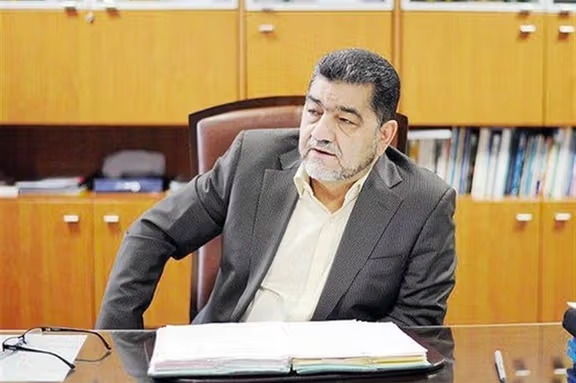
Reports have revealed that a manager in one of Iran’s semi-public companies has pocketed €230,000 for his business travels abroad.
The head of Iran’s Mahab Qods Consulting Company, which operates in dam and hydropower industry under the Energy Ministry, has been paid €500 per day during his work trips to other countries.
The quasi-governmental engineering company -- one of Iran’s biggest -- was founded to build embankment and gravity dams in Iran but has changed its focus to small projects overseas for more profit.
According to Mehr news agency, the CEO of the firm, Nasser Tarkeshdouz, has been on domestic business trips for three days in the last five years, but spent 576 days in foreign countries during 117 trips, for which he received €233,200 euros.
The astronomical payment by Iranian standards is apart from his own salary that is most probably much higher than salaries ordinary Iranians receive.
According to data published in December, there is a vast difference between minimum and maximum salaries in Iran.
While the minimum wage across the government is fixed at about $120 a month, the highest earning personnel can get up to $10,000.
The high paid employees are usually well-connected individuals who have access to extra legitimate or illicit incomes if they are part of the financial corruption network in the country.
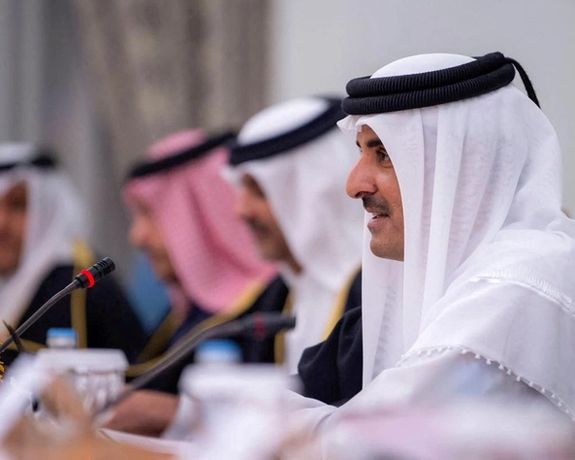
US and Qatari leaders will discuss a broad agenda in Washington on Monday, including Iran and energy security in the aftermath of a potential Russian invasion of Ukraine, US officials said.
Qatar is the world's largest supplier of liquefied natural gas (LNG) and may divert supplies to Europe if the Ukraine conflict disrupts Russian gas deliveries to the continent. Russia supplies about one-third of Europe’s gas.
President Joe Biden's agenda for the Oval Office meeting with Qatar's emir, Sheikh Tamim bin Hamad al-Thani will also include the Iran nuclear talks and relations with Afghanistan, where Washington's interests are now represented by the small Gulf country.
Qatar’s foreign minister Mohammed bin Abdulrahman Al-Thani visited Tehran on January 27 and held talks with senior officials. Iran denied that the visit was related to facilitating direct talks between Tehran and Washington, as some media had reported.
Qatar has maintained friendly ties with Iran despite serious tensions other Arab Gulf states have with Tehran.
Tamim will also meet separately with Homeland Security Secretary Alejandro Mayorkas and discuss arms sales and other military issues with Defense Secretary Lloyd Austin, an official told reporters.
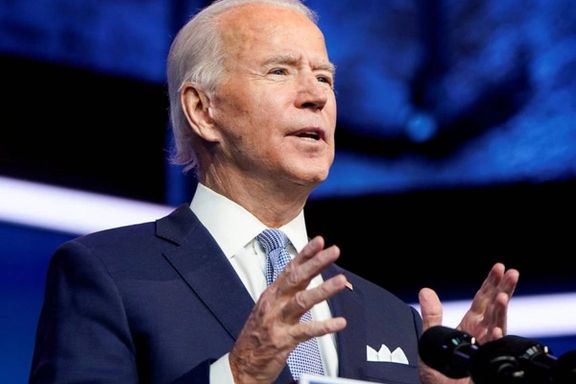
US President Joe Biden says Washington won't consider Taliban's legitimacy until Navy veteran Mark Frerichs is released by the group.
Biden said in a statement on Sunday that “The Taliban must immediately release Mark before it can expect any consideration of its aspirations for legitimacy”.
He said, “Threatening the safety of Americans or any innocent civilians is always unacceptable, and hostage-taking is an act of particular cruelty and cowardice”.
He addressed all the Americans being held hostage and wrongfully detained overseas, and their families and friends, saying, “Know that my administration will continue to work steadfastly until every American being unjustly held against their will comes home”.
However, Biden did not mention several hostages who are being held by the Islamic Republic of Iran despite calls by human rights organizations on the Biden Administration to press Tehran for their release during the Vienna nuclear negotiations.
Earlier in January, two former Iran hostages staged a hunger strike at the venue of the talks to revive the 2015 nuclear deal, hoping that their campaign can stop the United States from concluding a deal with Iran until the hostages are freed.
The US Special Envoy for Iran Robert Malley met with Barry Rosen, a US diplomat who was held hostage in the US embassy takeover in the early 1980s and stressed the importance of the release of four American-Iranians held in Iran but stopped short of saying their freedom was a precondition for Washington for reaching a nuclear deal with Iran.

Iran-backed Houthis fired a missile at the United Arab Emirates in the third such attack in January, while Israeli President Isaac Herzog was visiting the country.
UAE defense ministry said on Monday that the attack, 20 minutes past midnight was intercepted. There was no news of any missile hitting a target, but debris fell on an uninhabited area.
Yemen's Houthi group said on Monday it had fired a number of ballistic missiles at Abu Dhabi, capital of the United Arab Emirates, and had also fired several drones at Dubai, the regional business hub.
A senior official described the attacks as "useless" provocations that would be dealt with to safeguard national security and sovereignty. "Those who test the UAE are mistaken," the official, Anwar Gargash, said in a Twitter post.
The attack followed reports in Iranian media affiliated with the Revolutionary Guards (IRGC) on Sunday. Tasnim and Fars news agencies reported quoting Houthi officials that the Yemeni rebels were planning large attacks against the UAE and Saudi Arabia.
"Future strikes on the UAE will be more effective and more powerful than before and the UAE may lose its capability to run the country," Lieutenant-General Abed Al-Thour the Deputy Chief of the Ideological Department of the Houthi armed forces told Tasnim in an exclusive interview. He added that the Houthi military is determined to "go deep inside the UAE to achieve its military goals".
The spokesman of the State Department reacted to the attack in a tweet, saying, “We condemn the latest Houthi missile attack on Abu Dhabi. While Israel’s president is visiting the UAE to build bridges and promote stability across the region, the Houthis continue to launch attacks that threaten civilians.”
The Biden Administration lifted the terrorist designation for Houthis as soon as it assumed office last year, a move questioned by critics as an attempt to encourage the group to accept peace proposals. Houthis have refused to take any conciliatory step, such as agreeing to ceasefire.
Herzog, who was on a historic trip to UAE less than two years after establishing full relations, spent the night in Abu Dhabi. He discussed security and bilateral relations with the UAE’s de facto ruler Abu Dhabi Crown Prince Sheikh Mohammed bin Zayed Al Nahyan.
The spokesman of Iran’s foreign ministry, Saeed Khatibzadeh, commenting on Herzog’s visit to the UAE said, “Those who normalize relations [with Israel] should know…that the first victims would be” themselves.
"We are determined in our strategic vision and goals to help build a stable and prosperous region for all and provoking us is useless," said Gargash, diplomatic adviser to the UAE president.
The UAE's defense ministry said coalition warplanes had destroyed missile launchers that were located in Yemen.
The UAE is part of the Saudi-led coalition that has been battling the Houthis for nearly seven years in a conflict largely seen as a proxy war between Saudi Arabia and Iran.
The Houthis, who have repeatedly launched missile and drone attacks on Saudi Arabia, have warned they would continue targeting the UAE unless it stopped "interfering" in Yemen.
The UAE largely ended its military presence on the ground in 2019 but holds sway through Yemeni forces it arms and trains and which recently joined battles against the Houthis in key energy-producing regions.
With reporting by Reuters